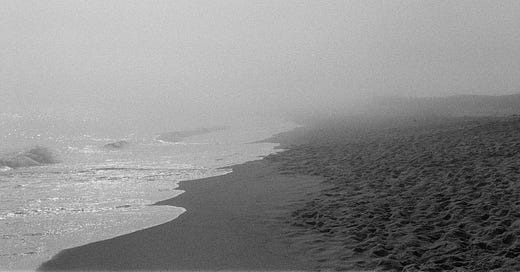Q: If…
the body, mind, thoughts, feelings, emotions, consciousness, perceptions, and mental formations are all not self…
and dependent origination, the process which creates conditioning, consists of what is neither me nor mine…
and conditioning lead to behaviors, choices, actions, and reactions made of elements that are neither me nor mine…
…how am I the owner of my kamma (karma) which derives from variables that are not-self?
A:
It is true that yourself, as in the ‘self’ that appears to exist, is not comprised of thoughts, feelings, emotions, et cetera. The Five Aggregates are simply phenomena subject to arising and passing away depending on conditions. That which is unfixed cannot be the ‘self’.
You are not the causes and conditions that enable you to act in certain ways. But nevertheless, your body, mind, feelings, emotions, and causes and conditions do exist. And from these, your intentions, your kamma, is derived. You do make decisions. You do act and react as a result of these variables. The fact that these variables are not-self and largely out of your control is irrelevant to the reality that they are the causes and conditions by which you form intention.
The fact of the matter is that these intentions, your kamma, become causes and conditions in and of themselves. They are both the result of the process and the causes the propel the process of conditioning and reaction in perpetuity. For this reason, you are owner of your kamma. You have no choice but to inherit your kamma, for once it is created it becomes a cause and condition by which you will form intention once again.
Much of the processes of the mind and body are not within your control. They are not-self. They are anatta. However, it is a fact that intention is formed and mental, verbal, and physical action is taken. This kamma (habitual mind) is added to the body of causes and conditions that shape your thoughts, perceptions (saññā, 想), and mental formations (sankhāras, 行) that in turn serve as the basis for future kamma and action. In this way the ownership of your kamma is inescapable.
Practical knowledge and experiential wisdom is bhavana-maya-panna (修慧). (see Dhamma Letter No. 3). This wisdom will arise from your own practice and personal experience. It takes a life time, or perhaps many through the cycle of samsara.
Think of an apple. One will never understand what an apple is solely from description and analysis. It is only after taking a bite and tasting an apple that you come to know what it truly is. An apple’s essence can be described and expressed in many ways, but one simply knows how it tastes.
Please regard these teachings in a similar manner. We will continue to discuss how to practice in future Dhamma Letters.
May you be free from any bondages!
May you be developed the wisdom and understood anatta in your practice!
May you be happy and well!
With Metta,
Ayyā Kosallā
Edited by Max Montgomery
If you have any questions related to dhamma & meditation, please feel free to ask. You can reach Ayya Kosalla directly at Bhikkhuni.Kosalla@gmail.com.
법에 대한 질문이 있으신 분은 위의 이메일 주소로 질문을 남겨주세요.
이번 주부터 연재되는 위빠사나명상의 마음관찰에 대한 논문을 한글 원본으로 읽고 싶으신 분은 클릭해서 다운로드 받을 수 있습니다. (네이버에 PDF 첨부)
The Korean Dhamma Letter is here 담마레터.
Buddha Sāsanaṁ Ciraṁ Tiṭṭhatu!
May the Buddha’s teachings last a long time!
Bhavatu Sabba Sotiṁ ca Maṅgalaṁ ca!!
May everyone be led on the path of peace and blessing!!
Sādhu Sādhu Sādhu !



